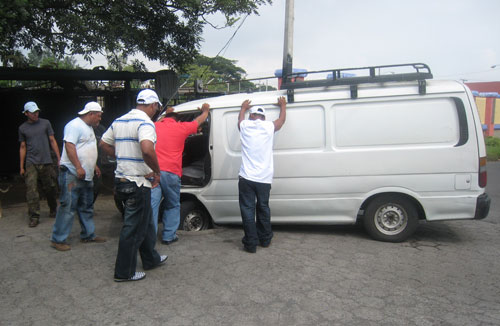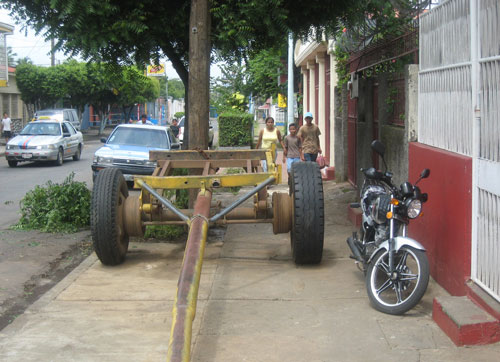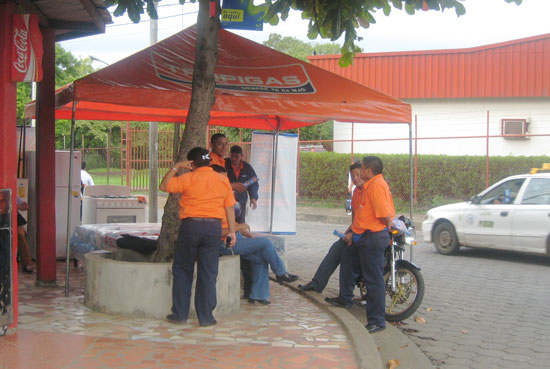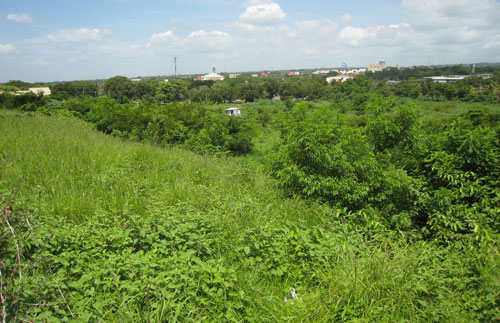 Managua Photos June-Sept, 2008
Managua Photos June-Sept, 2008  Managua Photos June-Sept, 2008
Managua Photos June-Sept, 2008
|
|
|
 ... and this are common throughout Nicaragua. Neither the government nor the iron shop in front of this highly trafficked way in the Capital has cared to be responsible for the capping of this perrenially open manhole. Obviously, mismanagement and low priority as a public responsibility, not lack of financial resources, is the cause of this dangerous negligence. |
 The distinction between public and private property of land is not well defined in theory nor in practice in Nicaragua. As here, frequently the public way is occupied by private parties at the inconvenience and even risk of other citizens. But parking on public streets, let alone sidewalks, constitutes use of public site value that the government could collect in land value taxes (LVT), temporary public site value user fees, or in this case, public indemnization fines. |
 Another example of a private interest occupying a public space and creating a public hazard on a highly trafficked corner in front of a hospital in Managua. Did the Municipal Government OK the private commercial use of this corner? If it did, it could also have assessed a temporary public site value user fee for the use of the public space. |
 This rural scene is actually in the very center of Managua, the capital of Nicaragua! Private owners of land speculate in its value, and that is the reason that the majority of Nicaraguan's cannot access the most economically viable land for employment and productive investment. While the majority of the best land lies in waste, Nicaraguans must cram themselves into substandard housing, protest in vain for government assistance to subsidize access to "private" land, or emigrate to other countries in search of basic employment opportunities denied them in their own country. |
Return to ![]() October 2008 News-Noticias page
October 2008 News-Noticias page
![]()
"Work with passion, have
fun, save the world!"
"Trabajar con pasión, divertirse, salvar el
mundo!"
since
Oct 2008